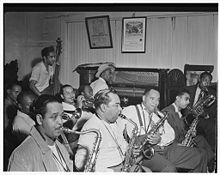
Daily Dose Of Jazz…
Eddie Wilcox was born in Method, North Carolina on December 27, 1907. He studied at Fisk University, where he met Jimmie Lunceford and played with him in college bands and then professionally in the mid-1920s. In 1929 he became the main arranger for the ensemble, and remained so until Lunceford’s death in 1947.
Wilcox was named co-leader with Joe Thomas after Lunceford died, and became sole leader in January 1949, where he remained until the group disbanded early in the 1950s.
His 1952 recording of the Bennie Benjamin and George David Weiss composition “Wheel of Fortune” became a hit in the U.S., peaking at #14. Following this Wilcox played solo at the Cafe Riviera in New York City for nearly a decade.
He and Teddy McRae founded the Raecox record label in the 1950s that produced and released R&B music. He also worked as an executive for Riviera and Derby record labels. Working with jazz trombonist Big Chief Russell Moore shortly before his death, pianist and arranger Eddie Wilcox passed away on September 29, 1968.
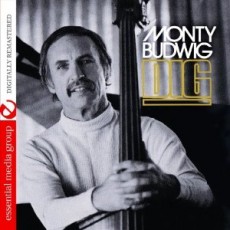
Daily Dose Of Jazz…
Monty Rex Budwig was born on December 26, 1926 in Pender, Nebraska. He began playing bass during high school, gigged with Vido Musso in 1951 and continued in the military band while in the Air Force.
In 1954 he moved to Los Angeles and became a sought after bassist in the West Coast jazz scene. He played with Barney Kessel and The Red Norvo Trio when he arrived followed by stints with Zoot Sims and the Woody Herman Orchestra. Budwig soon became a studio fixture, recording and performing as a sideman on countless sessions with many notable jazz musicians such as Carmen McRae, Barney Kessel, Woody Herman, Red Norvo, Bob Cooper, Scott Hamilton, Bud Shank, Shelly Manne and the Lighthouse All Stars.
Best known for his melodic solos and his ability to swing a band, Monty was highly regarded for playing with Vince Guaraldi, but there has been some question as to whether or not he was the bassist heard on the Charlie Brown Christmas Album. He released one recording as a leader titled “Dig” on the Concord label that included his wife Arlette McCoy on electric piano. Double bassist Monty Budwig passed away on March 9, 1992.
More Posts: bass
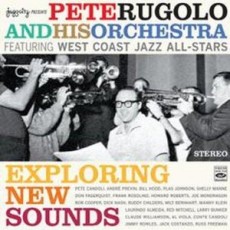
Daily Dose Of Jazz…
Pete Rugolo was born Pietro Rugolo in San Piero Patti, Sicily, Italy on December 25, 1915. His family emigrated to the U.S. in 1920 and settled in Santa Rosa, California. He began his career in music playing the baritone saxophone, like his father, but he quickly branched out into other instruments, notably the French horn and the piano. He received a bachelor’s degree from San Francisco State College and then went on to study composition at Mills College in Oakland, earning his master’s degree.
After graduation, he was hired as an arranger and composer by guitarist and bandleader Johnny Richards and spent World War II playing with altoist Paul Desmond in an army band. After WWII, Rugolo worked for Stan Kenton, providing arrangements and original compositions that drew on his knowledge of 20th century music, sometimes blurring the boundaries between jazz and classical music.
While Rugolo continued to work occasionally with Kenton in the 1950s, he spent more time creating arrangements for pop and jazz vocalists, most extensively with former Kenton singer June Christy and others like Ernestine Anderson, Harry Belafonte, Nat King Cole, Billy Eckstine, Peggy Lee, The Four Freshman, Mel Torme to name a few.
He would work on MGM film musicals, serve as A&R director for Mercury Records and produce a handful of self-titled albums. Pete’s scores for television and film on The Fugitive, Leave It To Beaver, Run For Your Life and Where The Boys Are often demanded that he suppress his highly original style. However, there are some striking examples of his work in both TV and film such as the soundtrack for his last movie, This World, Then the Fireworks demonstrates his gift for writing music that is both sophisticated and expressive. Pete Rugolo, jazz composer and arranger, died, aged 95, on October 16, 2011 in Sherman Oaks, California.
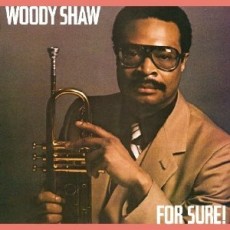
Daily Dose Of Jazz…
Woody Shaw born December 24, 1944 in Laurinburg, North Carolina with a photographic memory and perfect pitch. Growing up in Newark, New Jersey from the age of one, he began playing bugle at age 9 and performed in the Junior Elks, Junior Mason, and Washington Carver Drum and Bugle Corps. Though not his first choice of instrument, wanting to play the violin, he began studying classical trumpet at Cleveland Junior High School at the age of 11.
Shaw skipped two grades and began attending Newark Arts High School, pursuing an education at Julliard School and his interest in jazz, as his first influences were Louis Armstrong and Harry James. As a teenager, he worked professionally at weddings, dances, and nightclubs. He eventually left school but continued his study of the trumpet under the influence of Dizzy Gillespie, Fats Navarro, Clifford Brown, Booker Little, Lee Morgan and Freddie Hubbard.
In 1963, after many local professional jobs, Woody worked for Willie Bobo with Chick Corea and Joe Farrell before moving to Paris at age 19. There he gigged with Nathan Davis, Bud Powell, Kenny Clarke, Johnny Griffin and Art Taylor. In England he played with Davis, and childhood friends Larry Young and Billy Brooks.
Returning to the States in 1964, Shaw began his career as one of Blue Note Records’ formidable “house” trumpet players. He replaced Carmel Jones in the Horace Silver Quintet, and made his first Blue Note debut on Larry Young’s famed Unity album (1965), upon which three of his compositions “Zoltan”, “Moontrane”, and “Beyond All Limits” would appear.
Over the course of his career he would collaborate frequently and record with Chick Corea, Jackie McLean, Booker Ervin, McCoy Tyner, Andrew Hill, Herbie Hancock, Bobby Hutcherson, Max Roach, Art Blakey & The Jazz Messengers, Onaje Allan Gumbs, Mulgrew Miller, Steve Turre and others. He travelled all over Europe, performed with Max Roach in Iran in 1969, toured Japan, England, Italy, Germany Sweden, Switzerland, Egypt, Sudan, UAE, and India.
He would work as a studio musician and in pit orchestras and on Broadway musicals. He released several albums for Muse and Columbia record labels, was nominated for two Grammy Awards, and was voted Best Jazz Trumpeter of the Year among other accolades and honors. As an educator he taught countless clinics, master classes and private lessons to students around the world, was on the faculty of Jamey Aebersold’s jazz camp, taught Wynton Marsalis, Ingrid Monson, Chris Botti, Wallace Roney and Terence Blanchard among others.
Trumpeter Woody Shaw passed away at age 44 of kidney failure on May 10, 1989, leaving a memorable catalogue of more than sixty albums as a leader and sideman.
More Posts: trumpet
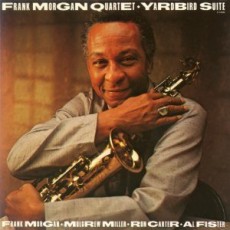
Daily Dose Of Jazz…
Frank Morgan was born on December 23, 1933 in Minneapolis, Minnesota and took after his father playing the guitar until he was seven, when he went to see Charlie Parker. Meeting him backstage, Parker suggested the clarinet for embouchure and two years later he switched to the saxophone.
Moving to California at age of 14, Frank entered and won a talent contest that provided him the opportunity to solo with Freddy Martin. But he hung out in the wrong circles and started taking heroin at 17, subsequently becoming addicted. He recorded with Teddy Charles in ’53 and Kenny Clarke in ’54 and touted as Charlie Parker’s successor, he would cut his first self-titled album “Frank Morgan” in 1955.
It would be three decades before his sophomore project due to his addiction and spending some twenty years in prison for various drug-related crimes. He would, however, form a small ensemble at San Quentin prison in the 1960s with another addict and sax player Art Pepper.
The Frank Morgan Quartet featured pianist Dolo Coker on piano, Flip Greene on bass and drummer Larance Marable. In 1985 he started recording again, releasing Easy Living in June 1985. This kicked off one of jazz’s most amazing comebacks. He recorded and toured vigorously but suffered a stroke in 1998. He subsequently recovered and once again began recording and performing.
Though mainly playing alto saxophone, Frank also played soprano and has recorded a string of excellent sets for Contemporary, Antilles, and Telarc, and has become an inspiring figure in the jazz world. Bebop alto saxophonist Frank Morgan passed away on December 14, 2007.
More Posts: saxophone






